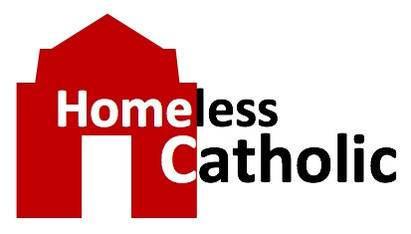The Father is always with us
It is reassuring to hear that God is always with us and everything he has belongs to us. So when we see others that are not like us, or perhaps the better part of us, we should remember that we are already with God and that IS the reward. The Pharisees and scribes continue to struggle with their perceptions of their own righteousness and their lack of response to those they should be ministering to.
Image by anand238
God is always with us and everything he has belongs to us
By Steve Leininger
https://bible.usccb.org/bible/readings/031123.cfm
Micah 7:14-15, 18-20
Luke 15:1-3, 11-32
Today’s readings start in the last chapter of Micah, a prophet from the 7th Century BC, who praises God, saying:
Who is there like you, the God who removes guilt
and pardons sin for the remnant of his inheritance;
Who does not persist in anger forever,
but delights rather in mercy,
And will again have compassion on us,
treading underfoot our guilt? [Micah 7:18-19]
God pardons sin and delights in mercy.
The Responsorial Psalm agrees:
The Lord is kind and merciful.
He pardons all your iniquities,
he heals all your ills.
He redeems your life from destruction,
he crowns you with kindness and compassion. [from Psalm 103]
Today’s gospel reading from Luke 15 starts off with:
Tax collectors and sinners were all drawing near to listen to Jesus,
but the Pharisees and scribes began to complain, saying,
"This man welcomes sinners and eats with them." [Luke 15:1-2]
We have come to expect Jesus to turn this into a “teachable moment” and we are not disappointed. The gospel continues “So to them Jesus addressed this parable.” I believe that Jesus turns this situation into two messages, one for the two distinctively different “them” in the audience. The first part was aimed at the “casual listener.” You know, you and me and the tax collectors and sinners. The more subtle message that comes later in the gospel was meant for the second group, the Pharisees and scribes.
Jesus delivers a smorgasbord of parables to drive home the first message, two of which were skipped in today’s reading, but both had similar main points. The first was the parable of the lost sheep. The man rejoices in finding the one sheep lost from his herd of a hundred. Jesus tells them:
“I tell you, in just the same way there will be more joy in heaven over one sinner who repents than over ninety-nine righteous people who have no need of repentance.” [Luke 15-7]
The next was the parable of the lost coin. A short story but almost the same message. After losing one of ten coins, a great search ensues. When the woman finds the missing coin, she calls her friends and neighbors to rejoice. Jesus says:
“In just the same way, I tell you, there will be rejoicing among the angels of God over one sinner who repents.” [Luke 15:10]
The short summary at this point is there is great joy in heaven when even one sinner repents.
The rest of today’s gospel related the story of the prodigal son.
Have you ever looked up the meaning of prodigal? Me neither. The Cambridge Dictionary says the adjective means: “spending or using large amounts of money, time, energy, etc., especially in a way that is not very wise.” So now we know.
This is a more in depth parable, and a big difference is that it involves lost people (the son) instead of lost property like sheep or coins. We find that being lost in this context is not just missing, but having lost one’s way, a broken moral compass. A lost soul perhaps. A sinner would recognize this person.
A man had two sons and his youngest requested and received his inheritance, which he proceeded to squander on having a great time . . . until it all ran out. We join the younger son, far away from home about to hit bottom:
When he had freely spent everything,
a severe famine struck that country,
and he found himself in dire need.
So he hired himself out to one of the local citizens
who sent him to his farm to tend the swine.
And he longed to eat his fill of the pods on which the swine fed,
but nobody gave him any.
Coming to his senses he thought,
'How many of my father's hired workers
have more than enough food to eat,
but here am I, dying from hunger.
I shall get up and go to my father and I shall say to him,
"Father, I have sinned against heaven and against you.
I no longer deserve to be called your son;
treat me as you would treat one of your hired workers."' [Luke 15:14-19]
On his journey towards home, the son must have been feeling a stew of shame and remorse. I’m guessing he was repeating his repentance over and over again in his head. Would he see mercy?
While he was still a long way off,
his father caught sight of him, and was filled with compassion.
He ran to his son, embraced him and kissed him.
His son said to him,
'Father, I have sinned against heaven and against you;
I no longer deserve to be called your son.'
But his father ordered his servants,
'Quickly, bring the finest robe and put it on him;
put a ring on his finger and sandals on his feet.
Take the fattened calf and slaughter it.
Then let us celebrate with a feast,
because this son of mine was dead, and has come to life again;
he was lost, and has been found.' [Luke 15:20-24]
That’s where my brain usually bogs down in the details. Pretty much happily ever-after. Rejoicing in heaven for a repentant sinner. Even a partial verse from the song Amazing Grace.
But wait, there’s more! I believe the ending of the prodigal son parable was directed at the Pharisees, scribes, and others who complain or become angry when a sinner seems to be getting preferential treatment. Let’s read on:
Now the older son had been out in the field
and, on his way back, as he neared the house,
he heard the sound of music and dancing.
He called one of the servants and asked what this might mean.
The servant said to him,
'Your brother has returned
and your father has slaughtered the fattened calf
because he has him back safe and sound.'
He became angry,
and when he refused to enter the house,
his father came out and pleaded with him.
He said to his father in reply,
'Look, all these years I served you
and not once did I disobey your orders;
yet you never gave me even a young goat to feast on with my friends.
But when your son returns
who swallowed up your property with prostitutes,
for him you slaughter the fattened calf.' [Luke 15:25-30]
How easy it is to agree with the older son! It’s not unlike the parable of the workers in the vineyard (Matthew 20: 1–16), where workers that showed up at the end of the day got paid the same as those who started working at dawn. Those worked all day long complain, and it’s somehow easy to agree with them. Are the Pharisees and scribes complaining only because Jesus is welcoming and eating with sinners? Or are they perhaps a bit jealous that he is focusing his attention on the outcasts of society and not welcoming the Jewish religious leaders to the meal? The parable ends thusly:
He [the father] said to him,
'My son, you are here with me always;
everything I have is yours.
But now we must celebrate and rejoice,
because your brother was dead and has come to life again;
he was lost and has been found.'" [Luke 15:31-32]
There is a lot of hidden meaning here. It starts out with an assurance to the righteous that “you are with me always” (and conversely I am with you always) and that “everything I have is yours.” You don’t have to squint to hard to get the point that the father is like the Father. We know him as God. It is reassuring to hear that God is always with us and everything he has belongs to us. So when we see others that are not like us, or perhaps the better part of us, we should remember that we are already with God and that IS the reward. The Pharisees and scribes continue to struggle with their perceptions of their own righteousness and their lack of response to those they should be ministering to.
The father’s declaration that “your brother was dead and has come to life again” hints at Jesus’ resurrection and the prospect of life ever after even for sinners. “He was lost and has been found” is repeated one more time to let us know that we, like the prodigal son, can change our ways, repent, and join in God’s feast. Rejoice and join the banquet!

